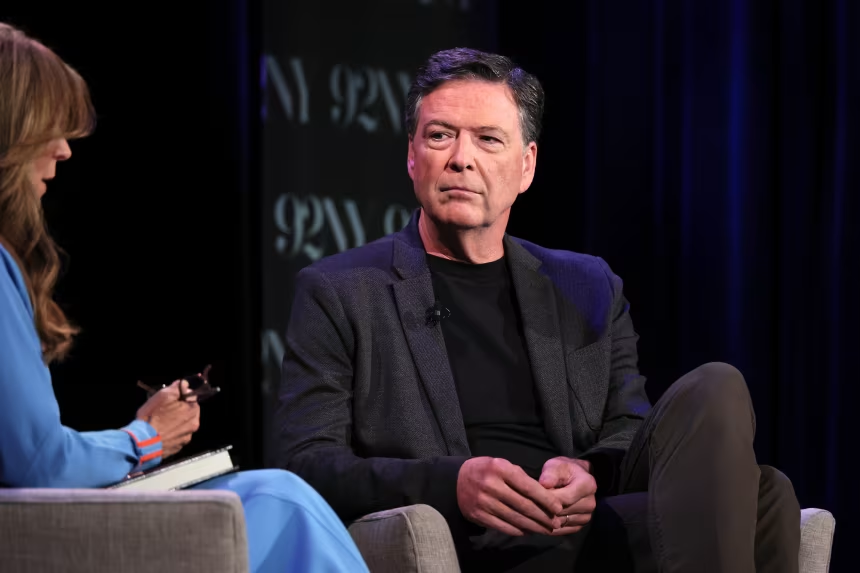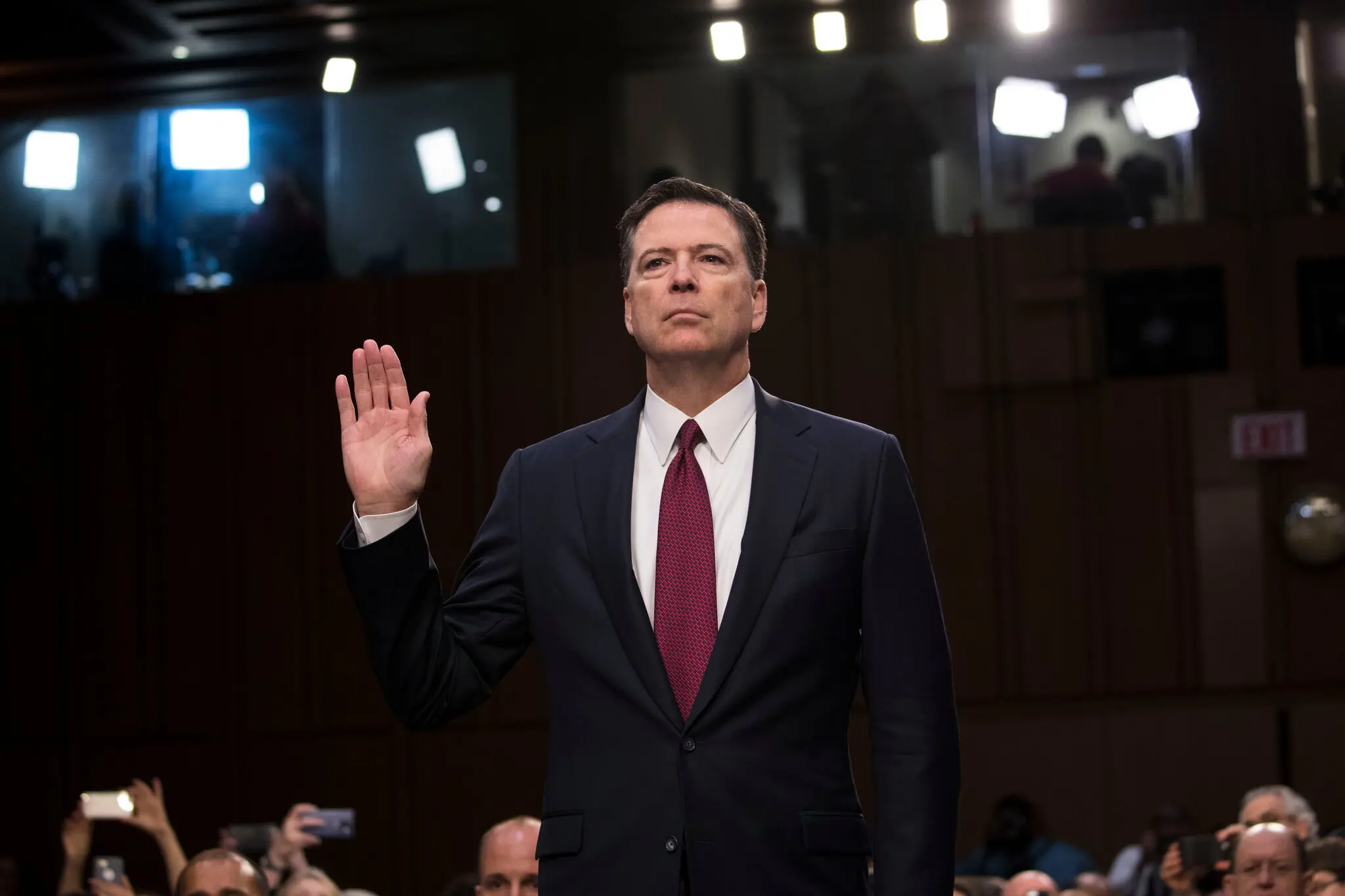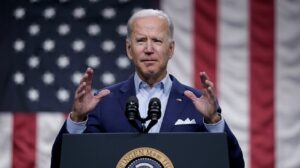James Comey’s Indictment dominates headlines as the Justice Department races to file charges before the statute of limitations expires. In an unfolding legal and political drama, prosecutors are reportedly preparing to ask a grand jury to indict the former FBI director for allegedly lying to Congress during his 2020 testimony about Russia-Trump investigations.

The Intensifying Push for Indictment
Over the past 48 hours, U.S. media outlets and inside sources have reported that the Department of Justice (DOJ) is actively preparing to bring criminal charges against James Comey, who headed the FBI from 2013 to 2017. The centerpiece of the potential case is an accusation that Comey made false statements to Congress in 2020 while testifying about the origins of the “Crossfire Hurricane” investigation into alleged Russian interference in the 2016 election.
Legal observers and sources in the DOJ emphasize that this move comes under intense time pressure: the five-year statute of limitations for perjury or false statements tied to his September 30, 2020, congressional testimony is set to lapse next Tuesday. To meet that deadline, prosecutors intend to present the case to a grand jury in the Eastern District of Virginia, where Comey testified remotely during the COVID-19 pandemic.
But the move is steeped in internal conflict: some prosecutors reportedly drafted a memo advising the newly appointed U.S. Attorney, Lindsey Halligan, to decline prosecution, citing insufficient evidence. Nonetheless, the DOJ appears poised to override such concerns, reflecting deeper political pressure.
If carried out, this would mark a historic moment: Comey would become one of the highest-ranking government officials ever indicted in connection with a presidential investigation.
Political Overtones and Department Turmoil
This case is not unfolding in a vacuum. It comes amid accusations that the DOJ is being weaponized against political adversaries. The chain of events has drawn sharp scrutiny regarding the integrity of prosecutorial decision-making.
Earlier this month, President Donald Trump publicly demanded that Attorney General Pam Bondi pursue charges against individuals he views as political enemies—including Comey, New York AG Letitia James, and Congressman Adam Schiff. Trump also replaced the sitting U.S. Attorney in the Eastern District of Virginia, Erik Siebert, with Lindsey Halligan—a longtime ally and former Trump legal aide with no prosecutorial experience. Critics view Siebert’s resignation and Halligan’s installation as a signal that legal restraint would give way to political loyalty.
Inside DOJ circles, pressure is said to be mounting. Some prosecutors reportedly resisted charging Comey, citing the absence of probable cause. But the political makeshift appears to be overriding those institutional checks.
If prosecutors move forward, the case could underscore growing concerns about the erosion of prosecutorial independence and deepening polarization in American governance.
What Statements Are Under Scrutiny?
The alleged false testimony centers on Comey’s statements to the Senate Judiciary Committee on September 30, 2020. During that hearing, he addressed the origins and handling of the FBI’s Russia investigation, including the so-called “Crossfire Hurricane” probe. Key issues include whether Comey or federal agents leaked information, whether he authorized or condoned such leaks, and whether his testimony was deceptive about internal FBI actions.
Critically, prosecutors must show proof that his statements were knowingly false, material to congressional proceedings, and made with intent (or reckless disregard) to deceive. That is a high bar and typically subject to intense defense challenge. Past probes of senior FBI officials have rarely resulted in charges, in part due to the difficulty of proving those elements.
Because the alleged false statements were made in a congressional hearing, the DOJ must also navigate unique procedural and constitutional constraints around Congress’ oversight role. This makes the case riskier and more politically fraught than ordinary false statement prosecutions.
Legal and Strategic Risks
From a legal standpoint, prosecutors face a steep test. According to some inside sources, DOJ investigators have already concluded that the evidence falls short of establishing probable cause—that is, a reasonable belief that a crime was committed. This concern reportedly led internal advisors to recommend declining to bring charges.
Nevertheless, the decision-makers appear poised to press ahead, perhaps banking on the political weight surrounding the case to mitigate risks. But that strategy carries consequences. If the grand jury declines to indict, or if defense attorneys succeed in defeating the case at a later stage, it could severely damage the DOJ’s credibility.
Additionally, the fact that Lindsey Halligan has never prosecuted a criminal case raises alarm bells among legal observers. Her lack of prosecutorial track record, coupled with the politically loaded nature of the case, heightens perceptions that the move is politically motivated.
Any misstep—procedural errors, insufficient evidence, or conflicts of interest—could provoke institutional backlash from DOJ career staffers, public criticism, and potential judicial rebuke.
National Fallout and Political Stakes
Should Comey be indicted, the political ramifications would be immense. For Trump and his allies, it would represent a powerful symbol of retribution against a long-time adversary. For critics, it would amount to a dangerous precedent: using the criminal justice system as a political weapon.
Public trust in the impartiality of the DOJ is already under strain. Many observers see the move as part of a broader pattern in which Trump is aggressively demanding prosecutions of perceived foes, including Letitia James and Adam Schiff. AP News
A failed prosecution would damage not only the standing of the Trump DOJ but also undermine public confidence in the fairness of the system. A successful indictment—if sustained—could reshape how future administrations wield prosecutorial power.
There is also concern among legal scholars that politicizing the DOJ in this way risks triggering institutional resistance from career prosecutors, internal resignations, and judicial skepticism about prosecutorial motives.
What Happens Next — Key Countdown
We now enter an urgent legal countdown. Prosecutors must present their case to a grand jury before the statute of limitations expires on the 2020 testimony—likely as soon as next Tuesday.
If the grand jury returns an indictment, the case would proceed into litigation, and Comey would become one of the highest-ranking former officials ever to face federal criminal charges. The Washington Post
If the DOJ declines or fails to secure an indictment, pressure may mount for congressional oversight or further internal conflict within the department. Senate or House committees may demand internal documents or memos reflecting deliberations. Legal scholars anticipate that much of the case could rest on classified or internal FBI records, making defense motions challenging and potentially creating national security hurdles.
Either outcome will have ripple effects. With the credibility of the DOJ on the line, the institution may face demands for internal reform, greater guardrails between politics and prosecution, or even congressional legislation to insulate prosecutorial decisions.
For now, all eyes are on the Eastern District of Virginia’s grand jury, scheduled presentations, and whether DOJ leadership is prepared to absorb fallout from whichever path emerges.
Conclusion
The unfolding saga around the James Comey Indictment is more than a legal proceeding—it is a high-stakes crossroads for the future of American institutions and the integrity of justice. What may begin as a ticking statutory deadline could become a defining moment in how power, accountability, and political rivalry intersect in the U.S. A decision made in the next few days will echo far beyond courtrooms, shaping perceptions of whether the DOJ remains a nonpartisan guardian of the law or becomes a tool of political retribution.
Subscribe to trusted news sites like USnewsSphere.com for continuous updates.





